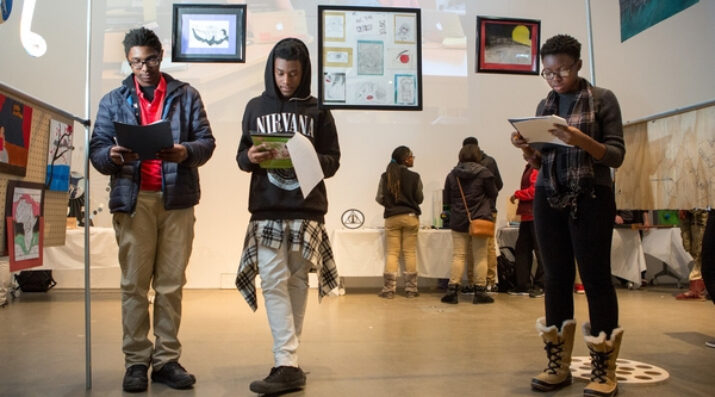Ethical Assessment: An Argument and Manifesto
Topics

Educators are rethinking the purposes, forms, and nature of assessment. Beyond testing mastery of traditional content knowledge—an essential task, but not nearly sufficient—educators are designing assessment for learning as an integral part of the learning process.
The 4 general principles of ethical assessment can be simply stated but convey deeply complex ideas. Find out how these principles determine if assessment is ethical or not.
Ethics is the consideration of the behaviors that will lead to good. A lot of terms in that sentence need to be defined, and they will be. But, just to highlight one point, it’s a consideration of behaviors, which means not just thinking “what’s the right thing to do” but also figuring out how to do it.
Assessment is what you do to figure out what you or someone else knows about doing a particular thing—and then figuring out what the next step is.
So, what is Ethical Assessment? What qualities make an assessment ethical, or not? Robert Marzano, at a conference that I was at 15 years ago (and it really stuck with me), said, “The only reason to do assessment is to figure out what to do next.” That is a statement of ethics, filled with should. It tells you something about when you should be doing assessment, what kinds of information you should be gathering, and what you should be doing with that information.
Ethical Assessment is all about the shoulds. The should nots are implied, though, and if you ask, we can talk about those, too.
In the blog post, 18 Things You Will See if You Are Doing Ethical Assessment in Your School, I invited you to look at the enactment of Ethical Assessment. What happens on the ground? What do you see? Hear? Experience? But shoulds are best relayed not as specifics but as general principles: How will we gather, sort, analyze, report, and use that information about kids? How will we use that information to create policies and practices for good?
Let’s state the general principles of Ethical Assessment as propositions (with a bunch of numbered lists, which seems to be my favorite unit of thought). Assessment can be said to be ethical if:
1. It is truthful. Which means …
- What the assessment and assessment system say about the kid are accurate reflections of their knowledge and skills.
- The assessment and assessment system offer enough information so that the picture of the kid is holistic and unbiased.
- The structures of the assessment and assessment system do not obscure salient information about the kid.
- No single assessment proves mastery in anything. Conclusions can only be drawn from a body of evidence.
2. It is aligned to the kid. Which means …
- Assessments are given at a time that suits where the kid is, not where they should be.
- The form of the assessment is a conduit for information about the kid’s learning, not a barrier.
- The assessment is genuinely engaging to the kid (possibly because they help in the design of the assessment).
- Wherever it is possible to afford freedom and agency to the kid, it is done.
- The assessment and assessment system are designed and implemented in a way that is for good in the community.
3. It is kind. Which means …
- The assessment and assessment system are not punitive in the name of merit. (e.g., If being named valedictorian is an honor, then NOT being named valedictorian is a dishonor.)
- The only uses the assessment and assessment system are put to are for the good of the kids and the community.
- The assessment and assessment system don’t over drive their results. They are epistemologically humble.
- The assessment and assessment system never purport to tell what a kid is or even what they can do. They tell what a kid did.
4. It is used for good. Which means …
- Assessment reinforces belonging.
- Assessment counters systems of Whiteness and privilege.
- Assessment supports activism (action) for good in the community and globally.
- Assessment contributes to the joy and meaning of the individual and community.
Each of these, literally, could be the basis of an entire conversation on its own, and that’s one of the reasons why I expressed them in this articulated form. On May 6, 2021, at the Assessment for Learning Conference, there will be a chance for those conversations to happen in virtual space.
Photo at top by Allison Shelley for American Education: Images of Teachers and Students in Action.




